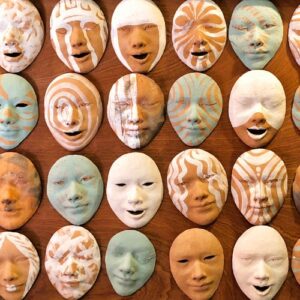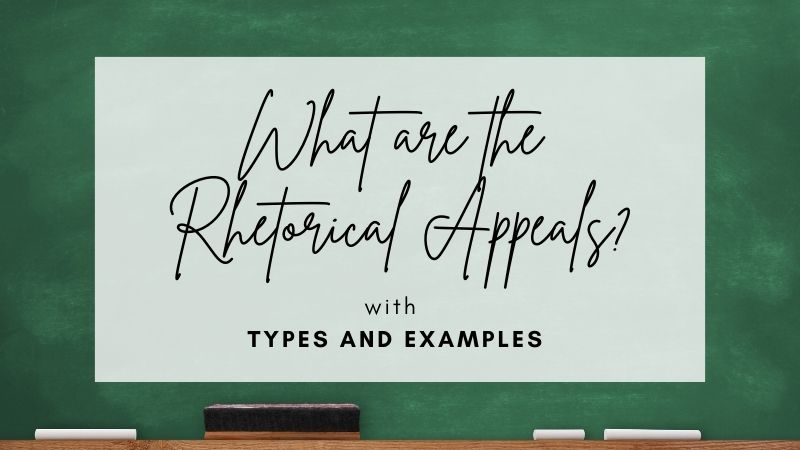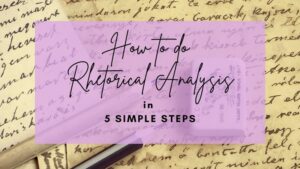We use rhetoric pretty much every day, so it is not really all that difficult to answer the following question: “What are the Rhetorical Appeals?” Let’s look at a realistic discussion I have had with my child.
When I am trying to get my 3-year-old to obey, I use basic logic that she can understand. If she refuses to obey, there will be a consequence. Simple and logical. Obey and you will have a positive outcome.
Now, if I wanted to use pathos, I might say the following: “You should obey mommy because she loves you!” Clearly, I am trying to make an emotional connection to my daughter. By the way, this appeal does not work.
Lastly, I could use ethos. Sometimes, this appeal does work. I could say to her, “I am your mommy, so you should do what I say.” I am attempting to appeal to my own authority as a mother.
Clearly, we have the opportunity to use rhetorical appeals in almost every situation in which we hope to achieve a specific purpose. Keep reading in order to dive more deeply into answering the question “What are the Rhetorical Appeals?”
Need help with Test Prep? Check out this FREE Pack of 3 Test Prep Activities to help students achieve success on standardized tests!
What are the Rhetorical Appeals?
1. Logos
Logos is an appeal to the audience’s rational thought by using facts and statistics.
When you are writing an essay, however, I would encourage you to get specific when answering “What are the Rhetorical Appeals?”. First, answer the question: What are the Rhetorical Appeals? Then, ask the following: What type of logos is used?
Types of Logos
- Direct references
- Explanations
- Definitions
- Facts
- Statistics
- Quotations from valid sources
- Citations from specialists (those with authority)
- Informed opinions
Example Using A Fact/Statistic
Here is an example of logos from “A Modest Proposal” by Jonathan Swift:
Ex. “There only remain an hundred and twenty thousand children of poor parents annually born.”
Ex. Swift specifies the number of the population born into poverty to highlight the major issue pervading the nation. He uses this fact as an argument for implementing his coming proposal, because it will affect so many people who are suffering under the current state of circumstances. Overall, this fact reinforces the desperate situation many are perpetually experiencing when answering What are the Rhetorical Appeals?!
If you stick to the facts, you will do well with creating and supporting a valid argument!

2. Pathos
Pathos is an appeal to the audience’s emotions through the use of emotional language.
Types of Pathos
- Specific, concrete language
- Emotionally loaded language
- Varied connotations
- Emotional examples
- Imagery
- Description
- Narratives or stories of emotional events
- Emotional tone(s)
Example Using Imagery
Check out this example from “Sinners in the Hands of an Angry God” by Jonathan Edwards.
Ex. “The glittering sword is whet, and held over them, and the pit hath opened her mouth under them.”
Ex. Edwards’ use of imagery serves to provoke fear in his audience. By depicting a sword as hanging above a person, he illustrates the ultimate doom many will face. Through this description, he hopes to convince his audience to turn to God and convert.
Unfortunately, because pathos relies on emotion, which can change at a moment’s notice, it is not a reliable appeal in argumentation. That’s why when asking “What are the Rhetorical Appeals?” you will quickly discover that knowing the types will help your students determine which ones are the most helpful!

3. Ethos
Ethos is an appeal to the audience through a belief in the speaker’s authority or credibility.
- References to beliefs/experiences the writer/speaker shares with the audience
- Explanations of personal authority or perspective
- Attempts at an unbiased outlook
- Proper level of terminology for an audience
- Writing is grammatically correct
Example Using Authority
See this example from the Declaration of Independence.
^ Click the link above to help your students answer the question “What are the Rhetorical Appeals?” for the whole document!
Ex. “the separate and equal station to which the Laws of Nature and of Nature’s God entitle them”
Ex. The author appeals to the authority of Nature and God in order to highlight the validity of breaking away from English rule. Because of their shared religion, this appeal emphasizes that, like those England, Americans also have a right to self-rule given to them by God and His Laws.
Click below to get help with writing a rhetorical analysis by answering “What are the Rhetorical Appeals?”!
What is the most important rhetorical appeal?
Answering “What are the Rhetorical Appeals?” is quite simple and straightforward, but recognizing which one is the most valuable is so important.
When it comes to making a valid argument, one should use logos as much as possible. It requires research from valid sources, which is why many people actually shy away from using logic. You can try to use pathos, but your perspective and feelings can only go so far. It might persuade someone to a degree, but it is not effective in terms of making a solid argument.
Likewise, an appeal to ethos, or authority, can be equally invalid. Just because someone has a degree or experience does not mean the information provided is reliable or of worth.
I know this ideology flies in the faces of many people. It can be tough to face the facts.
Additionally, facts and statistics can be proven over time by checking multiple, valid, and varied sources.
In contrast, emotions change. Requiring a degree to develop your argument is meaningless. Facts and statistics that are correctly gathered through the research process and include many diverse studies should also be evaluated and interpreted by logical, common sense reasoning skills.
This skill of using logos effectively takes time, discernment, and lots of effort, which is why it is way more valuable than ethos and pathos ever could be!
Check out this writing bundle to help answer the question “What are the Rhetorical Appeals?” SIMPLE and EASY for you and your students!
Want more help with lessons, activities, and quizzes? Check out my store, Kristin Menke-Integrated ELA Test Prep!





